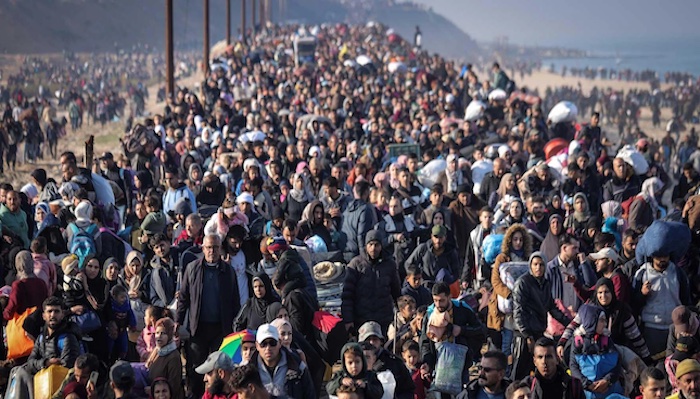Following the Supreme Court’s decision to allow Texas’s SB4 immigration law to take effect pending an appeal, a federal appeals court has now halted the implementation of the controversial legislation. SB4, considered one of the strictest immigration laws enacted by a US state in recent history, faced immediate legal challenges.
Under SB4, Texas officials would be empowered to detain and prosecute unauthorized migrants. However, just hours after the Supreme Court’s decision, the federal appeals court intervened to freeze the law.
The Mexican government, which shares a border with Texas, has stated its refusal to accept any migrants deported by Texas authorities under SB4.
The surge in migrant arrivals at the southern US border during President Joe Biden’s administration has elevated immigration as a top concern among US voters ahead of the upcoming presidential election in November.
Scheduled to take effect on March 5th, the SB4 law in Texas faced opposition from the Biden administration, which deemed it unconstitutional. The recent decision to freeze the law represents the latest development in a series of judicial rulings regarding its legality.
The implementation of SB4, if reinstated, would signify a notable departure in immigration enforcement procedures. Previously, courts have affirmed that only the federal government possesses the authority to enforce immigration laws in the United States, precluding individual states from such actions.
Illegal border crossings are already classified as federal offenses, typically adjudicated within the immigration court system as civil cases.
SB4 stipulates penalties of up to 20 years in prison for individuals found guilty of illegal entry or re-entry into Texas. However, it remains uncertain whether any migrants were detained during the brief period when the law was in effect.
In response to SB4, the Mexican foreign ministry issued a statement on Tuesday, expressing strong opposition to any measure granting state or local authorities the power to enforce immigration control, detain individuals, or repatriate them to Mexican territory.
The recent court ruling represents the latest development in a series of legal battles concerning the fate of SB4, underscoring the ongoing legal uncertainties surrounding its implementation.
In January, the Biden administration initiated legal action against Texas, contending that immigration matters fell under federal jurisdiction.
In February, a district court deemed SB4 unconstitutional and issued an injunction to prevent its enforcement, citing concerns that it could pave the way for individual states to establish their own immigration regulations.
Subsequently, the New Orleans-based US Court of Appeals for the Fifth Circuit permitted SB4 to be implemented pending an appeal, unless the Supreme Court intervened.
Responding to this, the Biden administration urgently petitioned the Supreme Court to uphold the district court’s injunction during the ongoing legal proceedings.
In the interim, Supreme Court Justice Samuel Alito temporarily halted the implementation of the law to allow for further judicial deliberation on its fate.



























